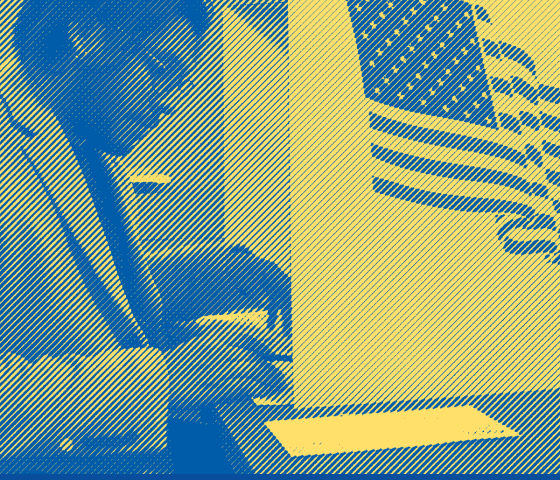Washington, D.C. – The Supreme Court ruled today that the cruel and unusual punishment clause of the Eighth Amendment does not prohibit cities from punishing unhoused people for sleeping in public, even if they have nowhere else to go.
The ACLU of Iowa joined several other state ACLU affiliates with a friend of the court brief in the case. Read ours here.
Today the court held that punishing a person for sleeping in public, even if they have no other option, punishes conduct, not status, and so Robinson v. California, which established that it is cruel and unusual to criminalize a person’s status, does not apply.
"However, it’s important to note that such ordinances and actions, when applied to homeless people with no other options, may still violate other constitutional rights and be challengeable on other legal grounds," said ACLU of Iowa Legal Director Rita Bettis Austen.
In Iowa, some cities with known problem ordinances include:
- Dubuque has such an ordinance.
- Davenport has an ordinance banning sleeping in parks.
- Cedar Rapids and Des Moines have been identified as cities that criminalize being homeless and sleeping in a public area (see pages 59 and 60 in this 2019 national report on criminalizing homelessness).
- Iowa City forbids being in parks overnight.
- Ankeny also has a law forbidding sleeping in public spaces.
The case, Grants Pass v. Johnson, originated from an Oregon city that passed ordinances barring people from sleeping outside in public using a blanket, pillow, or even a cardboard sheet to lie on. In Grants Pass, Oregon, unhoused people could be saddled with hundreds of dollars in fines and even jail time for sleeping outside, even though the city lacked enough shelter beds.
Shefali Aurora, ACLU of Iowa staff attorney (head shot and ACLU of Iowa logo attached) said, "When you have no other place to stay—you can’t stay at a shelter, no one you might know locally will take you in, or you don’t even have a car to sleep in—what is a person supposed to do? Many homeless people don’t have any other option."
"Issuing fines that unhoused people couldn’t possibly afford or arresting them for sleeping outside when they have nowhere else to go is cruel. It runs afoul of basic human dignity and is exactly the type of cruel and unusual punishment the Eighth Amendment should bar," Aurora said. "
Scout Katovich, staff attorney in the Trone Center for Justice and Equality, said, “It is hard to imagine a starker example of excessive punishment than fining and jailing a person for the basic human act of sleeping.
"As Justice Sotomayor’s dissent powerfully acknowledged, sleep is a biological necessity, not a crime. We cannot arrest our way out of homelessness, and we will continue litigating against cities that are emboldened by this decision to treat unhoused people as criminals,” Katovich said.
The American Civil Liberties Union submitted a friend-of-the-court brief arguing that punishing unhoused people for sleeping outside when they lack access to shelter violates the Eighth Amendment protection against cruel and unusual punishment. As the brief highlights, the original intent and meaning of the Eighth Amendment and its application in more than a century of Supreme Court cases make clear that the government cannot impose punishment that is disproportionate to the crime.
The brief goes on to argue that Robinson v. California, which ruled that criminalizing a person’s status is cruel and unusual punishment and was relied upon by the lower courts in Grants Pass, is consistent with this proportionality principle. Applying the same proportionality principle, the brief stated, punishing unhoused people for sleeping in public when they have no other choice violates the Eighth Amendment.
The court’s decision reverses a Ninth Circuit Court of Appeals opinion that punishing unhoused people for sleeping in public when they have no access to shelter violates the Eighth Amendment protection against cruel and unusual punishment.
